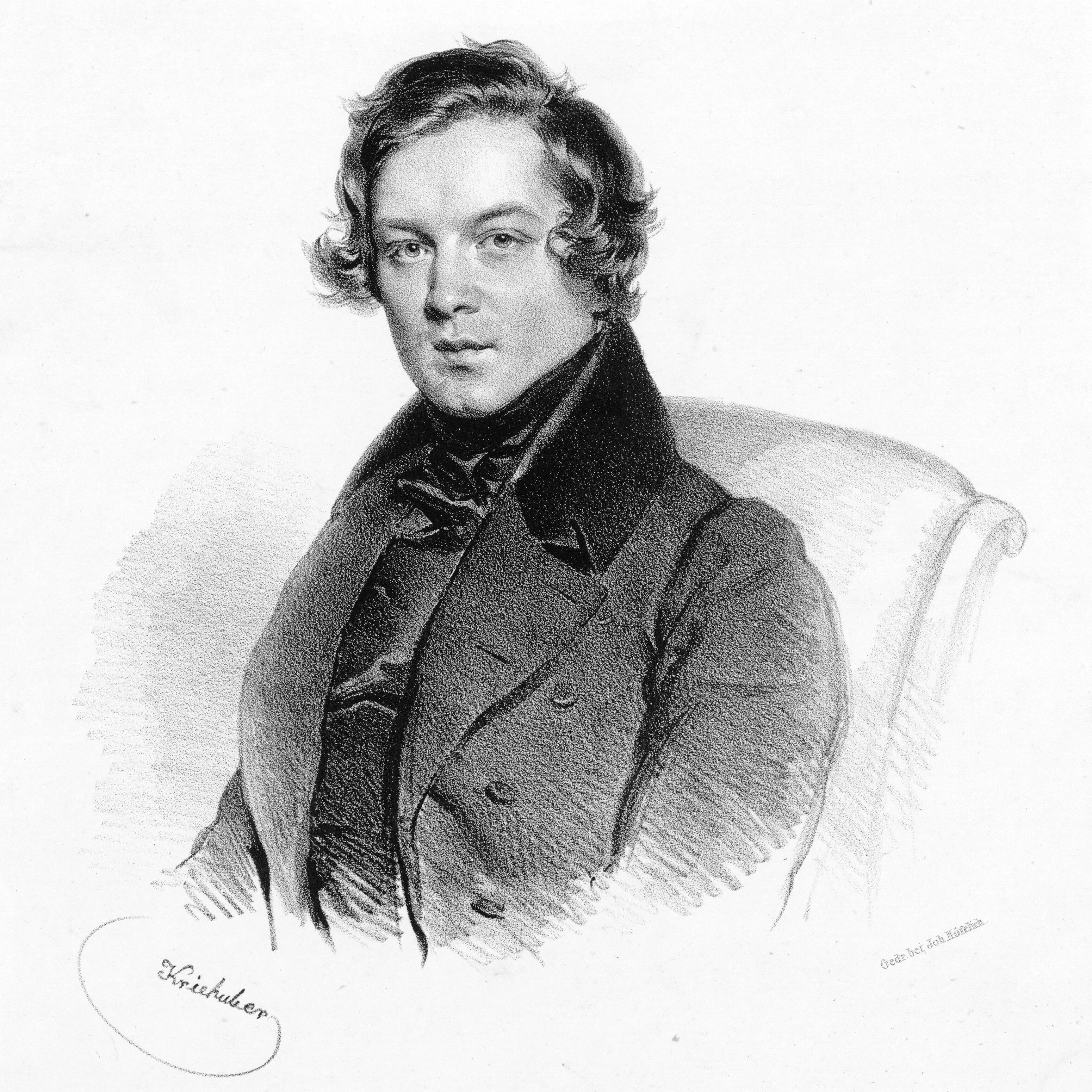Robert Schumann
 Robert Schumann (; 8 June 181029 July 1856) was a German composer, pianist, and music critic of the Romantic era. Schumann was born to a comfortable middle-class family with no musical connections, and was initially unsure whether to pursue a career as a lawyer or to make a living as a pianist-composer. He studied law at Leipzig and Heidelberg Universities but his main interests were music and Romantic literature. From 1829 he was a student of the piano teacher Friedrich Wieck, but his hopes for a career as a virtuoso pianist were frustrated by a worsening problem with his right hand, and he concentrated on composition. His early works were mainly piano pieces, including the large-scale ''Carnaval'' (1834–1835). In 1834 he was a co-founder of the (New Musical Journal) which he edited for ten years. In his writing for the journal and in his music he distinguished between two contrasting aspects of his personality, dubbing these ''alter egos'' "Florestan" for his impetuous self and "Eusebius" for his gentle poetic side.
Robert Schumann (; 8 June 181029 July 1856) was a German composer, pianist, and music critic of the Romantic era. Schumann was born to a comfortable middle-class family with no musical connections, and was initially unsure whether to pursue a career as a lawyer or to make a living as a pianist-composer. He studied law at Leipzig and Heidelberg Universities but his main interests were music and Romantic literature. From 1829 he was a student of the piano teacher Friedrich Wieck, but his hopes for a career as a virtuoso pianist were frustrated by a worsening problem with his right hand, and he concentrated on composition. His early works were mainly piano pieces, including the large-scale ''Carnaval'' (1834–1835). In 1834 he was a co-founder of the (New Musical Journal) which he edited for ten years. In his writing for the journal and in his music he distinguished between two contrasting aspects of his personality, dubbing these ''alter egos'' "Florestan" for his impetuous self and "Eusebius" for his gentle poetic side.In 1840 Schumann married Wieck's daughter Clara, despite the bitter opposition of her father, who did not regard Schumann as a suitable husband for her. The marriage was followed by prolific composing, first of songs and song‐cycles including ("Woman's Love and Life") and ("Poet's Love"). In 1841 he turned his attention to orchestral music, and in the following two years to chamber music and choral works.
Schumann and his wife toured Russia in 1844, after which his physical and mental health was poor for some months. The couple moved to Dresden, living there until 1850. In 1846 Clara gave the first performance of Robert's Piano Concerto and their friend Felix Mendelssohn conducted the premiere of Schumann's Second Symphony. In 1850 the Schumanns moved to Düsseldorf in the hope that his appointment as the city's director of music would provide financial stability, but he was not a good conductor and had to resign after three years. In 1853 the Schumanns met the twenty-year-old Johannes Brahms, whom Schumann praised in an article in the . The following year Schumann's always precarious mental health deteriorated gravely. He threw himself into the River Rhine but was rescued and taken to a private sanatorium where he lived for more than two years, dying there at the age of 46.
Schumann was recognised in his lifetime for his piano music – often subtly programmatic – and his songs. His other works were less generally admired, and for many years there was a widespread belief that those from his later years lacked the inspiration of his early music. More recently this view has been less prevalent, but it is still his piano works and songs from the 1830s and 1840s on which his reputation is primarily based. Provided by Wikipedia
-
21
-
22
-
23Classmark: Mus.neb 0084Book
-
24
-
25
-
26
-
27
-
28
-
29Classmark: Mus.neb 0777Book
-
30Classmark: Mus.neb 0079Book
-
31Classmark: Mus.neb 0736Book
-
32
-
33
-
34
-
35
-
36
-
37
-
38Classmark: Mus.neb 0819Book
-
39Classmark: Mus.neb 0817Book
-
40